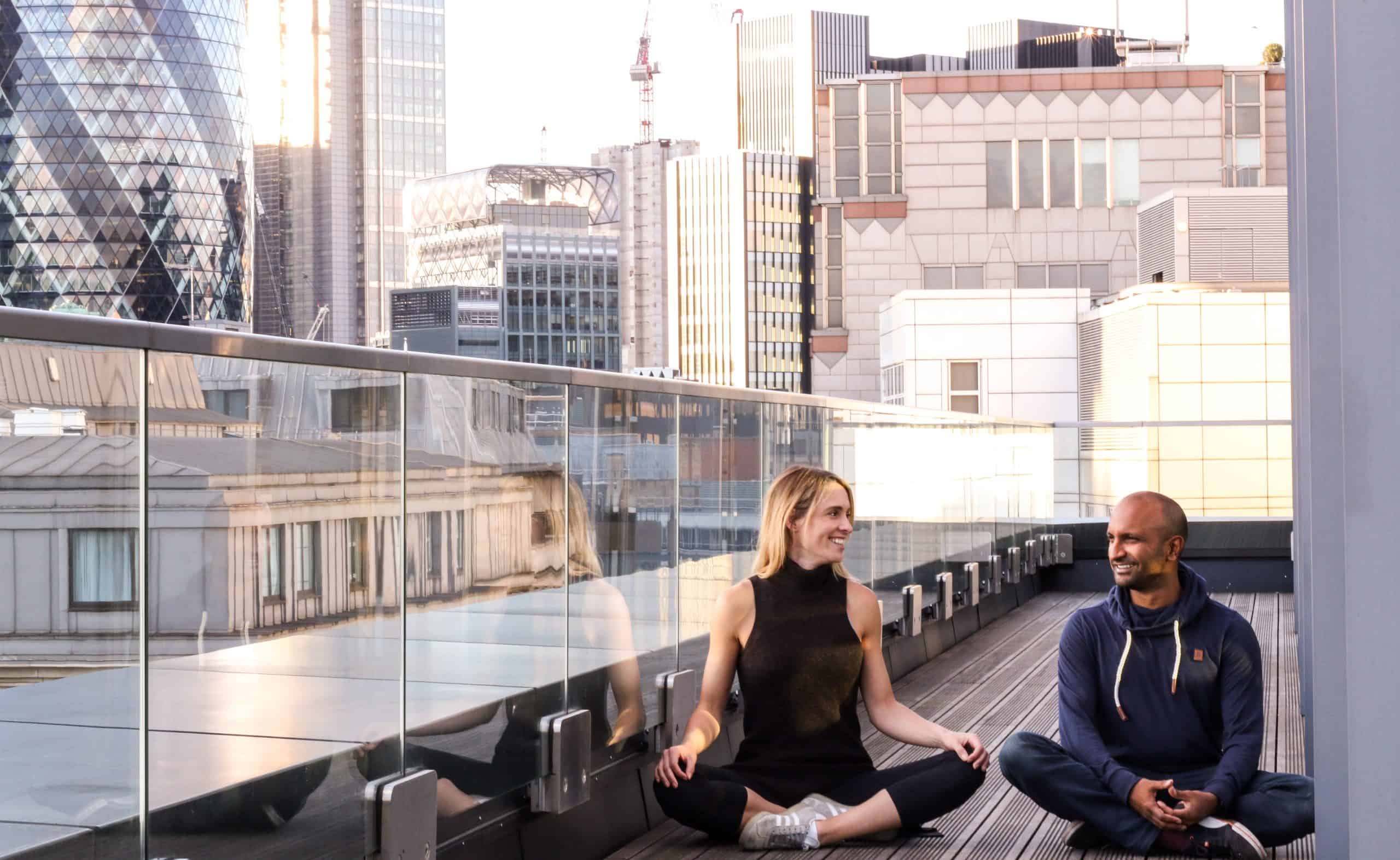Updated 13th April 2020 (first published in February 2018)
Relationship (noun): the way in which two or more people or groups regard and behave toward each other.
In other words, how we relate to one another. I’ve met my fair share of experienced meditators who struggle to relate to anyone who’s not into the same things they are into. Sorry, but it’s true. You know exactly what I mean, right? So we can take it as a given that meditation is not a catch-all magic bullet automatic “how to improve our relationships” solution. However, my own experience is that regular meditation has unquestionably improved my relationships.
I explored whether there is evidence showing that it’s the meditation itself that improves relationships, and if so how and why. My findings and ideas follow.
Depth of Research
I looked at a lot of studies directly about meditation and our ability to relate to one another and struggled to find any that were particularly conclusive or convincing. To give an example, this study published in Clinical Psychology Review in 2011, used neuro-imaging techniques to study areas of brain activation during and after connection based meditation practices. The clinical conclusion? “When combined with empirically supported treatments, such as cognitive behavioural therapy, LKM and CM may provide potentially useful strategies for targeting a variety of different psychological problems that involve interpersonal processes, such as depression, social anxiety, marital conflict, anger, and coping with the strains of long-term caregiving.”
LKM & CM stand for Loving Kindness Meditation (although I respect where it comes from and see real value in its techniques, it’s a term that can be off-putting, so we don’t use that description at Mind: Unlocked when we guide or talk about that form of meditation) and CM stands for Compassion Meditation.
It’s a typical example of the findings from a study in this area in that it’s noncommittal and inconclusive. The depth of research isn’t there, yet (or maybe you know it is, in which case please drop me a line? I would love to know if we’ve missed something). I think this is partly because the notion of “relationships” is quite difficult to test with an adequate level of controls to make it worthwhile. Also, in my opinion, controls in relationships are rarely a good thing either 😉

Image of me & meditation guide Natalie Cristal Morrison at citizenM, one of our M:U partner venues, by Vanshi Shah.
So where does that lead me? To the realm of logically piecing together the factors that make for good relationships, looking at the research around them and exploring associated real world experiences.
Looking for Answers
John Gottman PhD, founder of The Gottman Institute, is one of the USA’s leading researcher on couples and relationships in general and is known for his data driven approach. He says that amongst other things, partnerships fail because of a high degree of criticism and defensiveness. We already know that meditative practices can help us with our general awareness and to consciously choose our reactions rather than always being governed by them. I explore some of that in this article.
Holocaust survivor Viktor Frankl, author of Man’s Search for Meaning (I highly recommend reading that book), has a very famous quote — “Between stimulus and response there is a space. In that space is our power to choose our response. In our response lies our growth and freedom”. Mindfulness based meditative practices systematically train our brains to start noticing that space and choose our responses more consciously. In my experience, that heightened awareness of my mind and its processes has had a tremendous effect on my personal and professional relationships. I can focus more, listen better and curb my instinctive reactions more regularly.
Which leads me onto what I consider the most important relationship, the one we have with ourselves. If you’re sitting there right now thinking “What is this nutcase talking about, I don’t have a relationship with myself?!” that voice, right there — that’s you talking to you! The relationship we have with ourselves is the one that hugely governs how we think, what we do and how we relate to others.
If you’re not familiar with neuroplasticity, it’s the relatively recent discovery that our brains are not fixed, that they physically change over time. As a stroke survivor I know this first hand. I shouldn’t be able to stand up to walk, but my brain has literally rewired itself so that I can.
Neuroplasticity also happens in reaction to how we train our brains (or not). Keep practising focus (as is a feature of mindfulness meditation) and our brains physically gets better at the process of focusing, keep practising tennis strokes and our neural pathways get better at the process of hitting tennis strokes, keep practising worrying and our brains get better at the process of worrying. That’s how it works.
Harvard neuroscientist Sara Lazar conducted studies to show that meditation training reduced the size of the amygdala, the part of the brain that’s associated with worry, stress and fear whilst also showing a thickening in the the temporo parietal junction, or TPJ, which is associated with perspective taking, empathy and compassion. Caveat time : the studies weren’t designed to show how much meditation it takes to enact these changes and Lazar is keen to stress this isn’t necessarily going to work for everybody.
Logic tells me these studies are promising enough to give it a sustained trial and seeing for yourself if it does translate into an improvement in your ability to relate to others. My personal experience, mentioned above, tallies with the benefits as described and it’s pretty clear to me that regular meditation is a key factor in that.

Image by Kevin Delvecchio
In Conclusion
Emma Seppala, a Science Director at Stanford University, has written how in a landmark study, Barbara Frederickson and her colleagues found that practicing 7 weeks of loving-kindness meditation increased love, joy, contentment, gratitude, pride, hope, interest, amusement, and awe. These positive emotions then produced increases in a wide range of personal resources (e.g., increased mindfulness, purpose in life, social support, decreased illness symptoms), which, in turn, predicted increased life satisfaction and reduced depressive symptoms.
Why that works wasn’t part of the study. I have my own theory — we know the brain can’t tell the difference between what is “real” and what it vividly imagines. If the experience creates a strong enough feeling to feel “real”, it will initiate a physical reaction. If you’re dubious about that here’s an example that you can probably relate to. Have you ever woken up with a violent jolt, and you know that you were dreaming about falling? But you’re in bed, there’s absolutely no way you were falling! Your brain was just convinced you were, hence the physical reaction.
I usually end these posts with a round-up of both meditation related and non-meditation related ideas and tactics that our community is using to enhance their experience in the subject of the post. On the former, I think it’s clear that meditation is definitely no catch all cure that will magically improve our relationships, but there’s clearly many aspects of it that can potentially help. On the latter, well… I’m not going to turn this into a relationship counselling session! “Relationships” is a complicated area and there’s people better placed to share in that space.
There’s a book that’s been recommended to me seems to explore the meditation/relationships link further (once you get over the cheese-fest title that seems to be a pre-requisite for any book designed to help us!) but I haven’t read it yet. Masha Lucas PhD, a neuropsychologist from Emory University, has written “Rewire Your Brain for Love: Creating Vibrant Relationships Using the Science of Mindfulness”.



